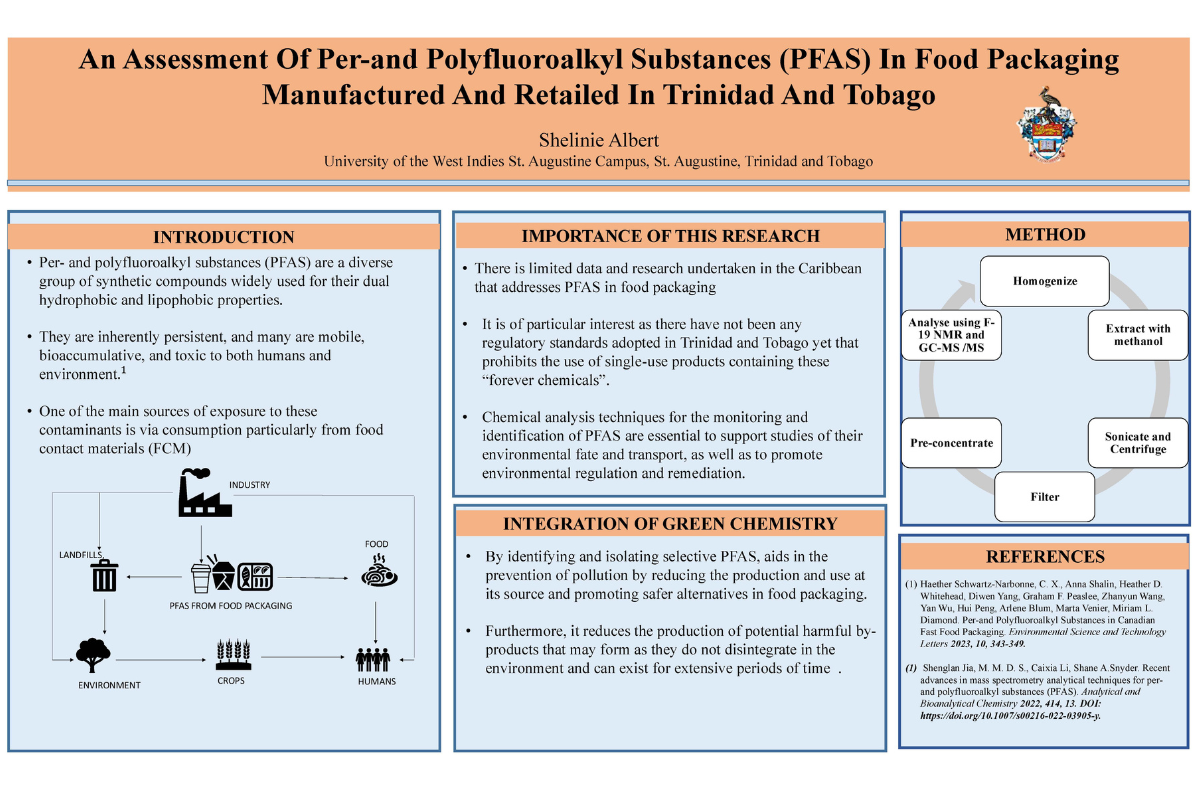
Per- and polyfluoroalkyl substances (PFAS) are a diverse group of synthetic compounds widely used for their dual hydrophobic and lipophobic properties. They comprise more than 4700 CAS-registered compounds according to the OECD and have been used intentionally in nonstick, grease-and waterproof, and stain-resistant consumer products, particularly food packaging materials. PFAS are inherently persistent, and many are mobile, bio-accumulative, and toxicity to a wide array of organisms, making them emerging contaminants of concern.
This research focuses on assessing the presence of these "forever chemicals" in food packaging of local manufacturers and retailers of international products in Trinidad and Tobago. It is of particular interest as there have not been any regulatory standards adopted in our nation as that prohibits the use of single-use products containing these “forever chemicals”. Chemical analysis techniques for the monitoring and identification of PFAS are essential to support studies of their environmental fate and effects, as well as to promote environmental regulation and remediation. Given their vast number and structural diversity, comprehensive characterization of PFASs in consumer products represents a considerable analytical challenge.
As such, my analytical approach encompasses both a non-targeted and targeted technique that uses both a non-destructive technique, that is F-19 NMR, to determine the Total Fluorine content by evaluating the unique chemical shifts produced by the terminal -CF3 moiety present in PFAS compounds. Thus, complementing the high selectivity of F-19 NMR with the sensitivity of GC-MS/MS allows for the identification of a wide scope of PFAS compounds together with the quantification of trace levels of PFAS. In addition, the potential impact it has on human health would be further explored.
Locally, this research will form the fundamental basis on which policymakers can implement regulatory standards and policies to address their environmental and health concerns, particularly on the use of food packaging materials containing these “forever chemicals”. Furthermore, it would form the framework for more continued research to be done in the Caribbean.